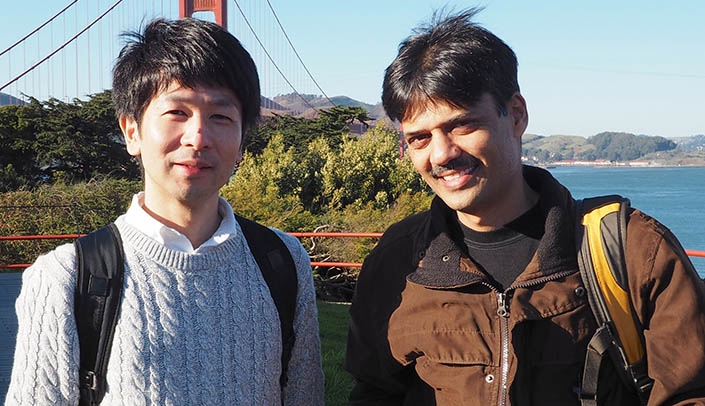Taconic Biosciences, a global leader in providing genetically engineered mouse model and service solutions, has acquired a worldwide, non-exclusive license to a novel CRISPR genome-editing technology that was developed at UNMC.
Last year, the laboratories of Channabasavaiah Gurumurthy, M.V.S.C. (D.V.M.), Ph.D., associate professor of developmental neuroscience at UNMC’s Munroe-Meyer Institute, and Masato Ohtsuka, Ph.D., Tokai University in Japan, developed a genome engineering technology with up to a 100 percent accurate way to genetically alter a mouse.
They called the method Easi (Efficient additions with ssDNA inserts)-CRISPR.
“In 2013, when the CRISPR gene editing tool was invented, the animal genome engineering community thought that it will soon make the previously used, Nobel-prize awarded genetic engineering technologies outdated. The revolutionary CRISPR tool needed to be made ‘Easi’er in order to achieve this,” Dr. Gurumurthy said.
“We are glad that our technical improvements, such as Easi-CRISPR and i-GONAD (improved-Genome editing via Oviductal Nucleic Acids Delivery), have been embraced by the community and are thought to redefine how animal transgenesis is practiced in the future,” Dr. Gurumurthy said.
UNeMed, the technology transfer arm of UNMC, licensed the technology.
“The discovery of CRISPR hints at products and services that are now possible with Easi-CRISPR,” said Joe Runge, J.D., UNeMed licensing specialist. “We’re over-the-moon that Taconic is the first of many to start making those possibilities real.”
The terms of the agreement include a worldwide, non-exclusive license to the technology, allowing Taconic rights to generate and sell rodent models generated with Easi-CRISPR. When compared to traditional CRISPR, Easi-CRISPR represents a significant advantage, allowing researchers to perform whole genetic insertions versus being limited to point mutations and constitutive knockouts.
John Couse, vice president of scientific services of Taconic Biosciences, said that Easi-CRISPR is the next progression of the revolutionary CRISPR/Cas technology.
“Combining the speed of CRISPR with larger genetic insertions allows complex projects, typically requiring homologous recombination techniques, to reduce project timelines by six months.”
Taconic, in Rensselaer, N.Y., is a fully licensed provider of rodent model generation services and has more than 20 years of model design experience. Last year, the company acquired a non-exclusive license to CRISPR-Cas9 technology from ERS Genomics.

Congratulations Dr. Gurumurthy! This is exciting.
Congratulations!